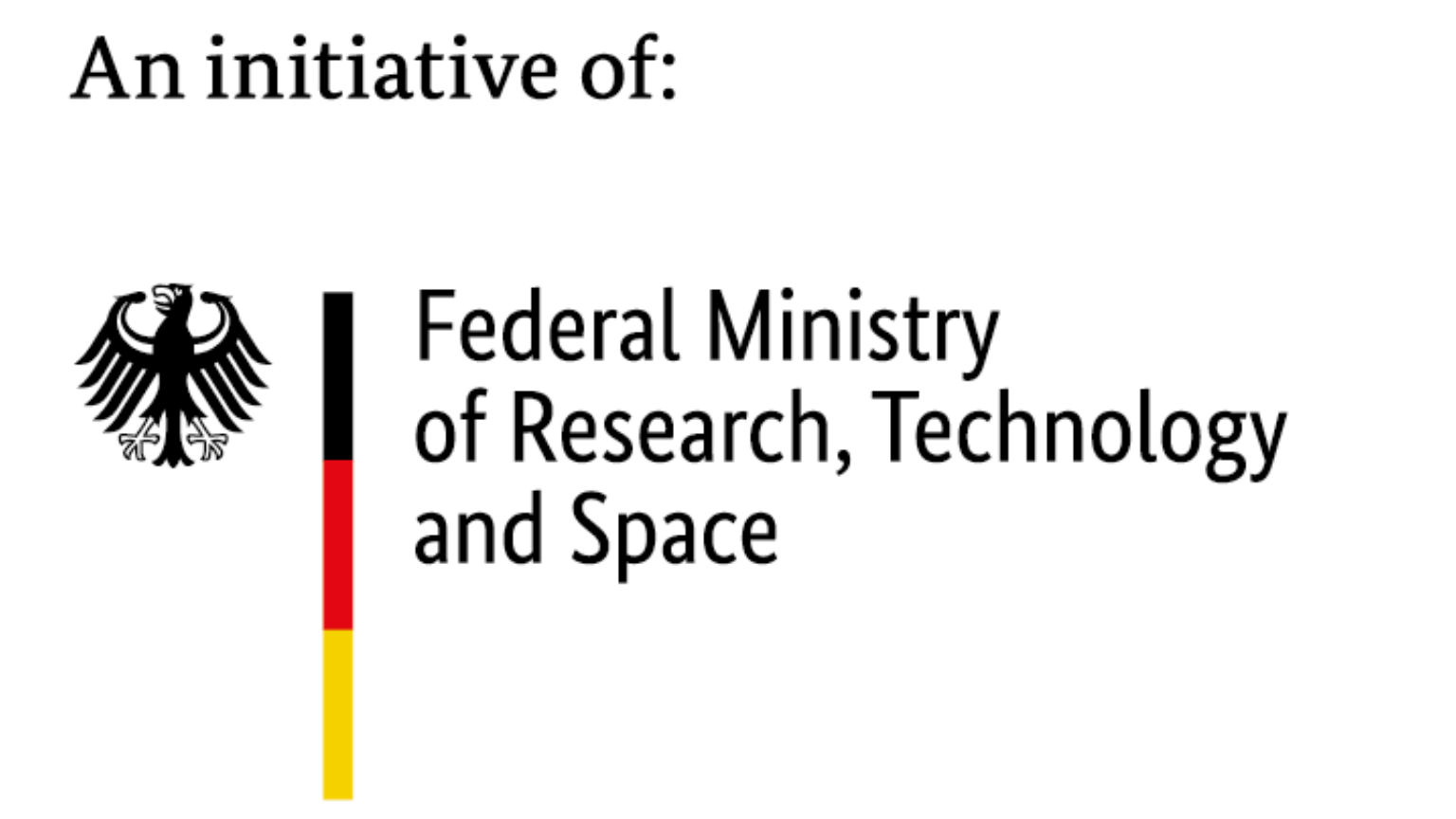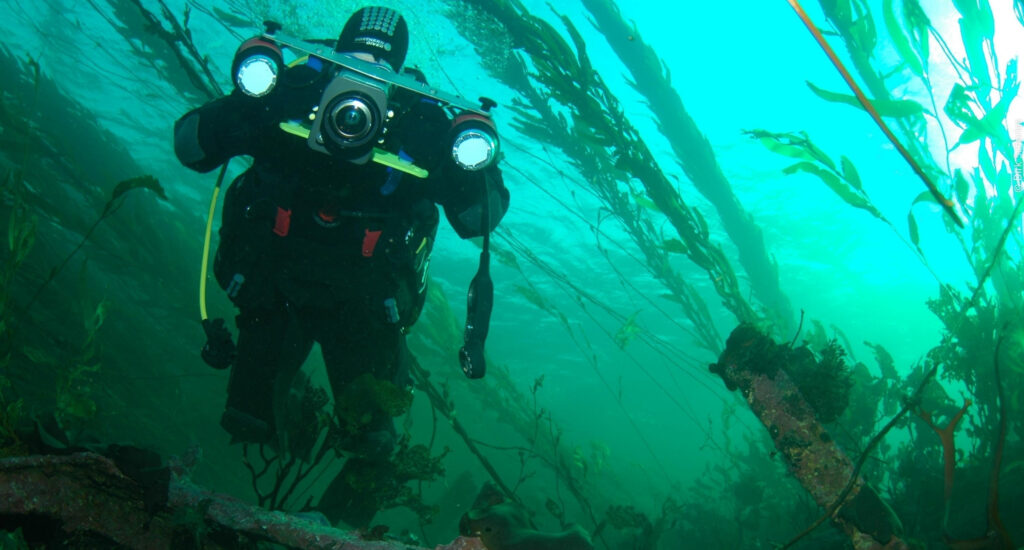
Transfer
Using Knowledge Effectively for Politics, Business and Society
The transfer of scientific findings to politics, business and society with a view to strengthen the sustainable use of coasts, seas and oceans is a core element and cross sectional task of the German Marine Research Alliance (DAM).
The DAM pools the expertise of the German marine research community, ensures a goal- and needs-oriented exchange of knowledge and fosters the dialogue with politics and society. The DAM also develops and coordinates solution-oriented research missions in which science-based decision-making options are developed. The DAM’s research missions are intended to facilitate research and development in close cooperation with the business world.
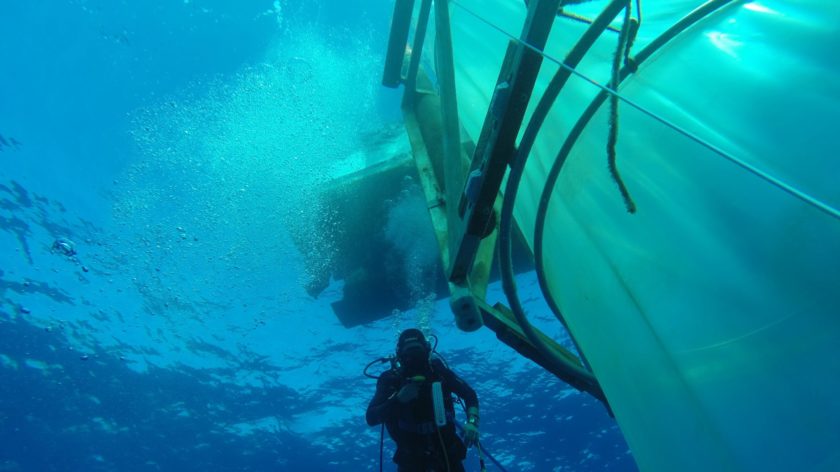
fields of action
Scientific findings have an impact on society when they lead to innovation, new developments, decision-making or a growth in knowledge outside the research community. Knowledge transfer in the DAM follows a strategic concept with four fields of action.
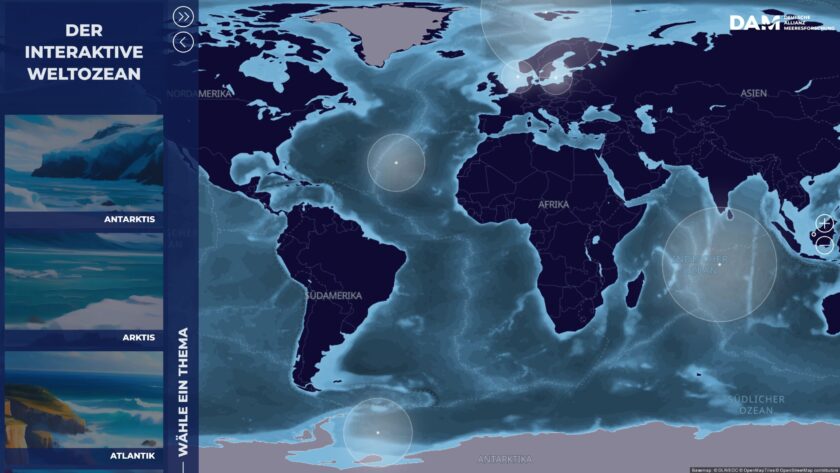
THE INTERACTIVE WORLD OCEAN
The Interactive World Ocean is a touchscreen-based ocean map for schools and exhibitions. The World Ocean invites visitors to discover the diversity of the oceans, immerse themselves in different marine regions and understand the interrelationships between them. The Interactive World Ocean is an official project of the UN Ocean Decade.
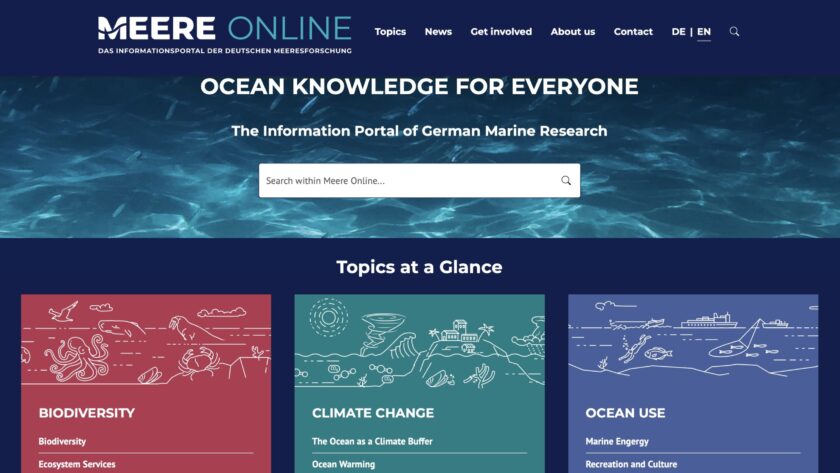
OCEAN ONLINE
The digital information portal “Ocean Online” offers science-based information for anyone interested in coasts, seas and oceans – knowledge for sustainable action to better protect the oceans and use them more sustainably. The information portal is an official project of the UN Ocean Decade.
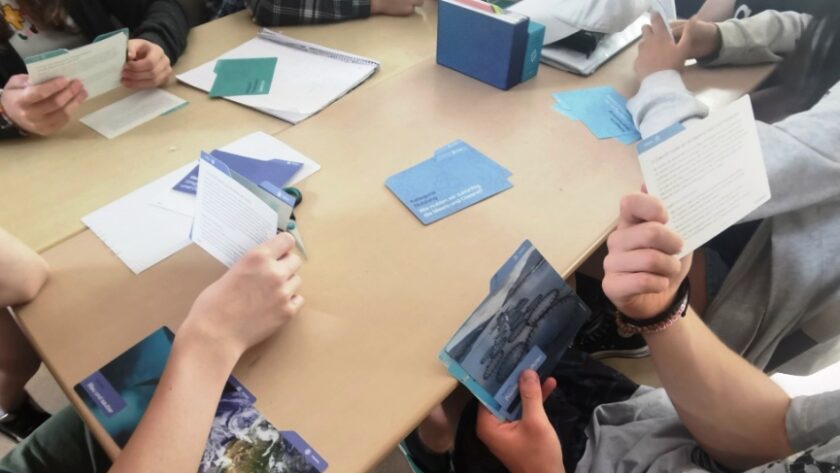
Future box oceans
What will our oceans look like in the future? How can we shape a desirable future on our “blue planet”? Together with the Futurium, the DAM has developed the Future Box Oceans, which can be used to playfully develop various future scenarios on these questions in a workshop format. The Future Box is suitable for pupils and adults.
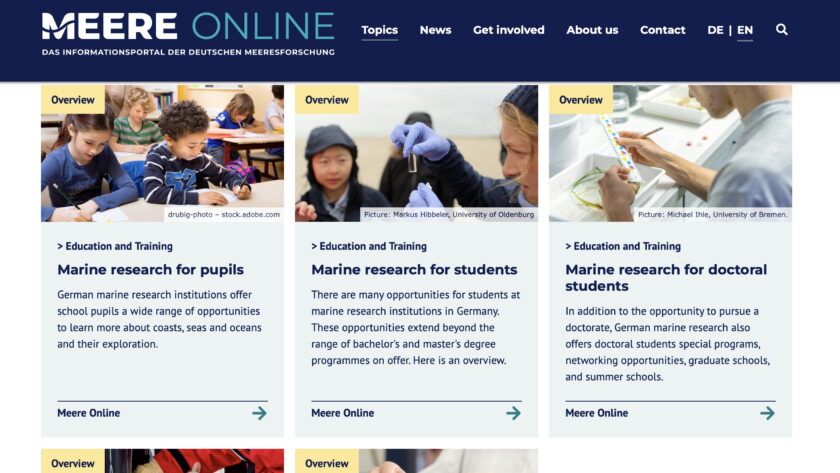
EDUCATION
German marine research offers a wide range of formats for promoting young talent at the locations of DAM member institutions. The Meere Online information portal provides an overview of educational opportunities for school pupils as well as special offers for students, doctoral candidates and postdocs.
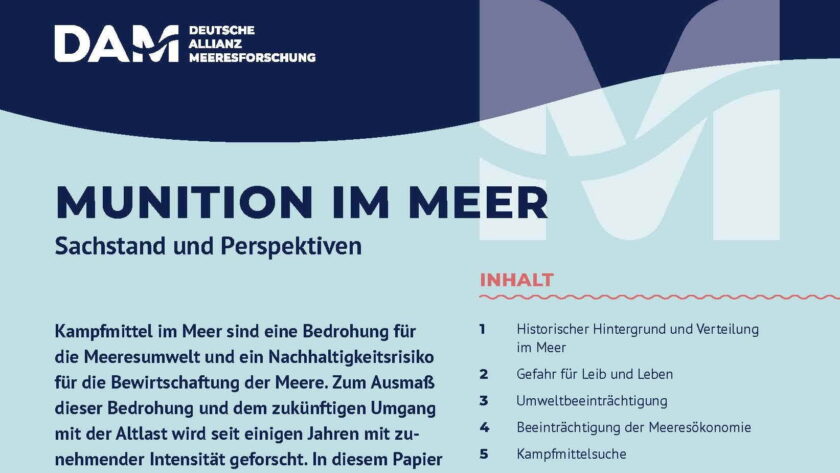
Focus topic
The contamination of the North and Baltic Seas by munitions poses a threat to the marine environment and a risk to the sustainable use and management of the seas. On the subject of Munition in the Seas, the DAM provides an overview of the scientific status quo, supplemented by a GMT report on the value creation prospects for the marine industry.
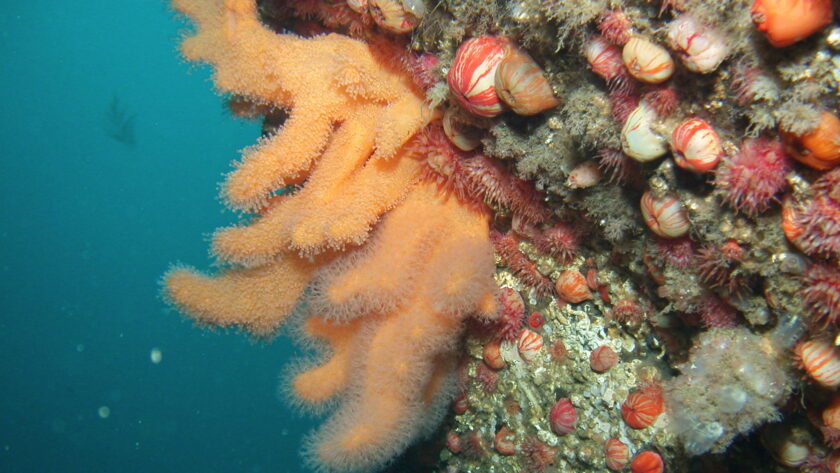
Cooperations
Healthy oceans that are protected and used sustainably – this is the goal that the DAM is working towards together with stakeholders from politics and society. There is close cooperation with the Federal Government/Federal States Working Group on the North Sea and Baltic Sea (BLANO), which is responsible for implementing the European Marine Strategy Framework Directive.
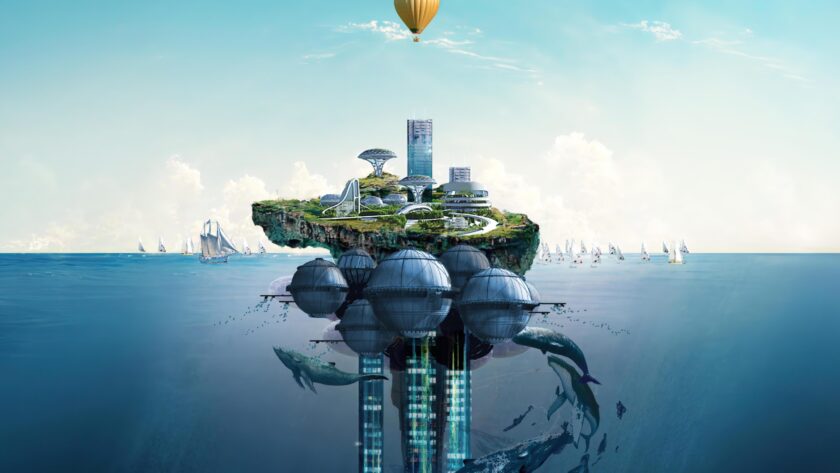
Ocean future Lab
Together with partners, the DAM has developed the Ocean Future Lab for the Federal Ministry of Education and Research’s “Science Year 2022 – Inquiry!”. Together with Futurium, the DAM publishes the Future Box Oceans as an interactive educational offer, which has been recognized as an official activity of the UN Ocean Decade.
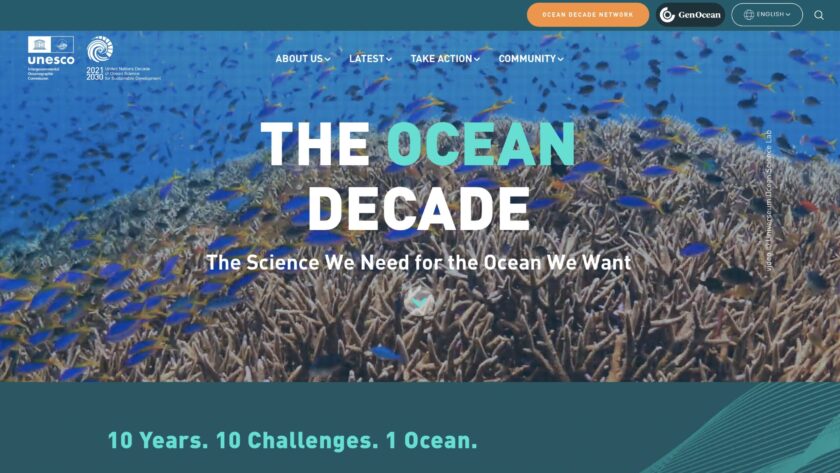
UN Ocean Decade
The United Nations has proclaimed the years 2021 to 2030 as the Decade of Ocean Science for Sustainable Development. Policy makers, society and scientists are to work together to successfully implement sustainable development goals for “life below water”. Three DAM transfer projects are recognized as official contributions to the UN Ocean Decade.
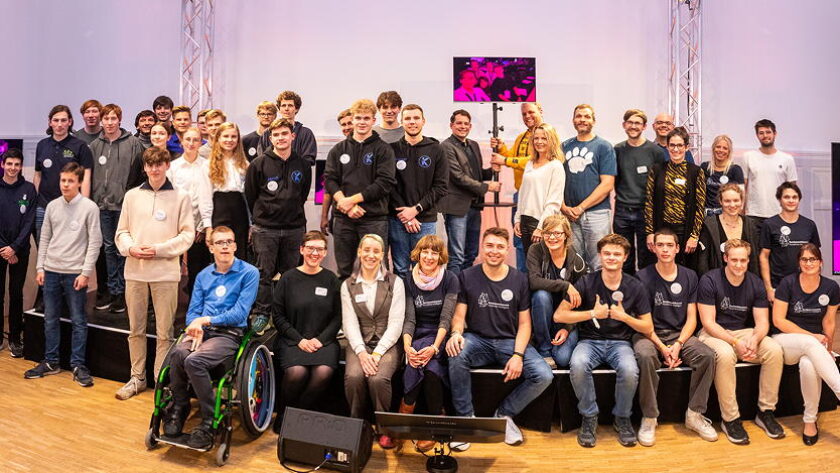
“Bundeswettbewerb KI”
The DAM is participating in the “Bundeswettbewerb für Künstliche Intelligenz (BWKI)” for school students with a special prize in the “Environment and Sustainability” category. The aim is to promote AI projects that deal with ecological and social issues for sustainable development.
contact
If you have any questions or suggestions regarding the transfer of the German Marine Research Alliance, please contact Ute Wilhelmsen
Newsletter
Always up to date with the DAM newsletter. (German only)
